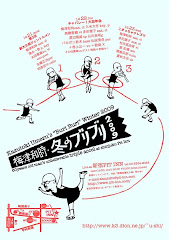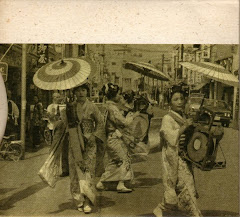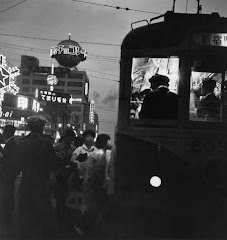 (Dizim, 1997)
(Dizim, 1997)"Japanese koto wonder Miya Masaoka teams up with bassist Reggie Workman and drummer Andrew Cyrille for a set of originals, traditional tunes, and — as indicated in the title — Monk numbers. The koto is a harp that has existed in Japan since antiquity. It and the shakuhachi flute are the only two traditional instruments of Japanese origin that co-exist in royal court music as well as command a long, richly variegated folk lineage. Masaoka is first and foremost a folk musician and an improviser; her jazz leanings inform them both. Her command of the jazz and improvisational idioms here is total. She is unquestionably the bandleader, despite the lofty, well-deserved reputations of her accomplices. The set begins in the traditional vein with "Japanese Folk Song," utilizing the large timbral palette of the koto and the subtle bowed tonalities Workman adds via the bass. It is on "Monk's Mood," however, that the set truly kicks into gear with an eerie reading of the composer's melody as interpreted by an instrument not even tuned to the diatonic scale! Masaoka's reading of the lyric line is one of subtlety, grace, and, above all, musical aplomb. Her understanding of Monk's harmonic principles is without compare as she whispers forth from the tune's "sung" aspect rather than its rhythmic considerations. This is also true of "Evidence," which slips just off the metered axis to reveal a greater sense of space and even pacing than what has been the popular conception. "Epistrophy" becomes a study in shades and colors with interesting runs by Workman against Masaoka's conception of the melody and Cyrille's successful attempt to at least unite the composition in rhythm. The set closes with a tribute piece, the seven-minute "Monk's Sigh in July," a deeply meditative piece reflecting the elongated modal motifs in Monk's mature work with Columbia and even Black Lion when he was reinventing himself once again. It's a bit smarmy in how obvious it is, but it is also an ingenious use of drone against harmony and a deft methodology for creating open improvisational space. This disc is a winner".
by Thom Jurek (All Music)
titles :
1- Japanese folk song
2- Monk's mood
3- Aubade
4- Evidence
5- A shinto "midnight"
6- Snow capped hats
7- Epistrophy
8- 'round midnight
9- Monk' sigh in July
musicians :
Miya Masaoka : koto
Reggie Workman : bass
Andrew Cyrille : drums
NOW










